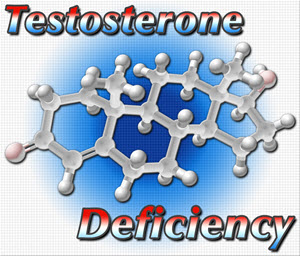Introduction to Secondary Hypogonadism
Secondary hypogonadism, a condition characterized by the inadequate production of testosterone due to a dysfunction in the hypothalamus or pituitary gland, is increasingly prevalent among American men. This hormonal imbalance can lead to a myriad of symptoms, including decreased libido, fatigue, and muscle loss. While medical interventions are often necessary, the role of nutrition in managing and potentially mitigating the effects of secondary hypogonadism cannot be overstated.
The Importance of a Balanced Diet
A balanced diet is crucial for overall health and plays a significant role in hormonal regulation. For men with secondary hypogonadism, consuming a diet rich in essential nutrients can help support testosterone production. Key nutrients include zinc, vitamin D, and omega-3 fatty acids, which have been shown to positively influence testosterone levels.
Zinc: A Critical Nutrient for Testosterone Production
Zinc is a vital mineral that plays a pivotal role in testosterone synthesis. Studies have demonstrated that zinc deficiency can lead to reduced testosterone levels. American men can increase their zinc intake by incorporating foods such as oysters, beef, and pumpkin seeds into their diets. Additionally, zinc supplements may be beneficial for those unable to meet their needs through diet alone.
Vitamin D and Its Hormonal Benefits
Vitamin D, often referred to as the "sunshine vitamin," is another essential nutrient linked to testosterone production. Research indicates that men with sufficient vitamin D levels tend to have higher testosterone levels. To boost vitamin D intake, American men should consider spending more time outdoors, consuming fortified foods like milk and cereals, and, if necessary, taking vitamin D supplements.
Omega-3 Fatty Acids and Hormonal Health
Omega-3 fatty acids, found in fatty fish such as salmon and mackerel, have been shown to improve testosterone levels. These healthy fats also offer anti-inflammatory benefits, which can be particularly advantageous for men with secondary hypogonadism, as inflammation can exacerbate hormonal imbalances.
The Role of Protein in Muscle Maintenance
Protein is essential for muscle maintenance and growth, which can be particularly challenging for men with secondary hypogonadism due to muscle loss associated with low testosterone levels. Consuming adequate amounts of protein from sources like lean meats, eggs, and legumes can help support muscle health and overall physical well-being.
Carbohydrates and Their Impact on Hormonal Balance
Carbohydrates, often misunderstood in dietary contexts, play a crucial role in maintaining hormonal balance. Complex carbohydrates, such as whole grains and vegetables, provide a steady source of energy and help regulate blood sugar levels, which can indirectly support testosterone production. American men should focus on consuming high-quality carbohydrates to optimize their hormonal health.
The Dangers of Excessive Sugar and Processed Foods
Excessive consumption of sugar and processed foods can have detrimental effects on hormonal health. These foods can lead to insulin resistance, which has been linked to lower testosterone levels. American men should aim to minimize their intake of sugary snacks and processed foods to support their hormonal balance and overall health.
Lifestyle Factors and Nutritional Synergy
While nutrition plays a significant role in managing secondary hypogonadism, it is important to consider lifestyle factors such as regular exercise and adequate sleep. These elements work synergistically with a nutritious diet to optimize hormonal health. American men should strive to maintain a holistic approach to health, incorporating both dietary and lifestyle adjustments.
Conclusion: A Holistic Approach to Managing Secondary Hypogonadism
In conclusion, nutrition is a powerful tool in the management of secondary hypogonadism among American men. By focusing on a diet rich in essential nutrients like zinc, vitamin D, and omega-3 fatty acids, while also minimizing the intake of sugar and processed foods, men can support their hormonal health. Coupled with a healthy lifestyle, these dietary adjustments can significantly improve the quality of life for those affected by secondary hypogonadism.
Contact Us Today For A Free Consultation

- Secondary Hypogonadism: Impacts on Cardiovascular Health and Management Strategies [Last Updated On: February 25th, 2025] [Originally Added On: February 25th, 2025]
- Secondary Hypogonadism in American Men: Importance of Regular Check-ups for Early Detection and Management [Last Updated On: March 17th, 2025] [Originally Added On: March 17th, 2025]
- Genetic Insights into Secondary Hypogonadism in American Males: Diagnosis and Treatment [Last Updated On: March 17th, 2025] [Originally Added On: March 17th, 2025]
- Exercise Regimens for Managing Secondary Hypogonadism in American Males [Last Updated On: March 18th, 2025] [Originally Added On: March 18th, 2025]
- Secondary Hypogonadism's Impact on Sleep: Strategies for American Men [Last Updated On: March 18th, 2025] [Originally Added On: March 18th, 2025]
- Stress-Induced Secondary Hypogonadism: Impact and Management Strategies for American Men [Last Updated On: March 19th, 2025] [Originally Added On: March 19th, 2025]
- Secondary Hypogonadism: Impact on Energy and Treatment Options in American Males [Last Updated On: March 19th, 2025] [Originally Added On: March 19th, 2025]
- Secondary Hypogonadism's Impact on Body Composition in American Men [Last Updated On: March 20th, 2025] [Originally Added On: March 20th, 2025]
- Managing Secondary Hypogonadism: Comprehensive Support for American Men's Health [Last Updated On: March 20th, 2025] [Originally Added On: March 20th, 2025]
- Secondary Hypogonadism: Impacts on Mental Health and Treatment Approaches in American Men [Last Updated On: March 21st, 2025] [Originally Added On: March 21st, 2025]
- Secondary Hypogonadism's Impact on Cognitive Function in American Men [Last Updated On: March 21st, 2025] [Originally Added On: March 21st, 2025]
- Secondary Hypogonadism: Understanding Impacts and Managing Prostate Health in American Males [Last Updated On: March 21st, 2025] [Originally Added On: March 21st, 2025]
- Understanding Secondary Hypogonadism: Symptoms, Testing, and Treatment for American Males [Last Updated On: March 21st, 2025] [Originally Added On: March 21st, 2025]
- Secondary Hypogonadism: Impact on Immune System and Health in American Men [Last Updated On: March 22nd, 2025] [Originally Added On: March 22nd, 2025]
- Secondary Hypogonadism and Mood Disorders: Impact and Clinical Management in American Men [Last Updated On: March 22nd, 2025] [Originally Added On: March 22nd, 2025]
- Secondary Hypogonadism in American Males: Causes, Symptoms, and Treatment Options [Last Updated On: March 22nd, 2025] [Originally Added On: March 22nd, 2025]
- Secondary Hypogonadism and Diabetes: Prevalence, Link, and Management in American Men [Last Updated On: March 23rd, 2025] [Originally Added On: March 23rd, 2025]
- Secondary Hypogonadism and Hair Loss: Causes, Diagnosis, and Treatment Options for American Males [Last Updated On: March 23rd, 2025] [Originally Added On: March 23rd, 2025]
- Exploring Alternative Therapies for Secondary Hypogonadism in American Men [Last Updated On: March 23rd, 2025] [Originally Added On: March 23rd, 2025]
- Secondary Hypogonadism in American Men: Symptoms, Diagnosis, and Management Strategies [Last Updated On: March 23rd, 2025] [Originally Added On: March 23rd, 2025]
- Secondary Hypogonadism and Anemia: Causes, Symptoms, and Management in American Males [Last Updated On: March 24th, 2025] [Originally Added On: March 24th, 2025]
- Secondary Hypogonadism's Impact on Fat Distribution in American Men: Risks and Management [Last Updated On: March 24th, 2025] [Originally Added On: March 24th, 2025]
- Secondary Hypogonadism's Impact on Kidney Function in American Males: Symptoms, Treatment, and Management [Last Updated On: March 24th, 2025] [Originally Added On: March 24th, 2025]
- Understanding Secondary Hypogonadism: Symptoms, Causes, and Management Strategies for American Males [Last Updated On: March 24th, 2025] [Originally Added On: March 24th, 2025]
- Secondary Hypogonadism: Impacts and Management Strategies for American Men [Last Updated On: March 25th, 2025] [Originally Added On: March 25th, 2025]
- Managing Secondary Hypogonadism in American Males: Diagnosis, Treatment, and Support [Last Updated On: March 25th, 2025] [Originally Added On: March 25th, 2025]
- Secondary Hypogonadism's Impact on Skin Health in American Men [Last Updated On: March 25th, 2025] [Originally Added On: March 25th, 2025]
- Nutrition's Role in Managing Secondary Hypogonadism: Key Nutrients and Dietary Strategies [Last Updated On: March 25th, 2025] [Originally Added On: March 25th, 2025]
- Secondary Hypogonadism: Understanding Its Profound Social Impact on American Men [Last Updated On: March 25th, 2025] [Originally Added On: March 25th, 2025]
- Secondary Hypogonadism in American Males: Symptoms, Diagnosis, and Management Strategies [Last Updated On: March 25th, 2025] [Originally Added On: March 25th, 2025]
- Secondary Hypogonadism's Impact on Bone Density in American Men: Diagnosis and Management [Last Updated On: March 25th, 2025] [Originally Added On: March 25th, 2025]
- Environmental Factors and Secondary Hypogonadism in American Men: Impacts and Interventions [Last Updated On: March 25th, 2025] [Originally Added On: March 25th, 2025]
- Lifestyle Impact on Secondary Hypogonadism in American Males: Prevention and Management Strategies [Last Updated On: March 25th, 2025] [Originally Added On: March 25th, 2025]
- Secondary Hypogonadism and Fatigue: Diagnosis, Treatment, and Management for American Males [Last Updated On: March 26th, 2025] [Originally Added On: March 26th, 2025]
- Thyroid Function's Impact on Secondary Hypogonadism in American Males: Diagnosis and Management [Last Updated On: March 26th, 2025] [Originally Added On: March 26th, 2025]
- Secondary Hypogonadism: Impact on Libido and Health in American Males [Last Updated On: March 26th, 2025] [Originally Added On: March 26th, 2025]
- Sleep Disorders and Secondary Hypogonadism: Impact on American Men's Health [Last Updated On: March 26th, 2025] [Originally Added On: March 26th, 2025]
- Secondary Hypogonadism: Impacts on Health and Treatment Strategies for American Men [Last Updated On: March 26th, 2025] [Originally Added On: March 26th, 2025]
- Secondary Hypogonadism's Impact on Cognitive Function in American Men [Last Updated On: March 27th, 2025] [Originally Added On: March 27th, 2025]
- Secondary Hypogonadism: Impacts, Mental Health Needs, and Integrated Care Solutions for American Males [Last Updated On: March 27th, 2025] [Originally Added On: March 27th, 2025]
- Secondary Hypogonadism's Psychological Impact on American Men: A Comprehensive Overview [Last Updated On: March 27th, 2025] [Originally Added On: March 27th, 2025]
- Managing Secondary Hypogonadism: Stress, Strategies, and Support for American Males [Last Updated On: March 27th, 2025] [Originally Added On: March 27th, 2025]
- Secondary Hypogonadism and Autoimmune Diseases: A Rising Concern in American Men [Last Updated On: March 27th, 2025] [Originally Added On: March 27th, 2025]
- Exercise Boosts Testosterone and Alleviates Secondary Hypogonadism Symptoms in American Men [Last Updated On: March 27th, 2025] [Originally Added On: March 27th, 2025]
- Secondary Hypogonadism's Impact on Emotional Well-being in American Men [Last Updated On: March 28th, 2025] [Originally Added On: March 28th, 2025]
- Secondary Hypogonadism and Liver Health: Impacts and Management in American Males [Last Updated On: March 28th, 2025] [Originally Added On: March 28th, 2025]
- Secondary Hypogonadism: Impacts on Physical Performance and Management Strategies [Last Updated On: March 28th, 2025] [Originally Added On: March 28th, 2025]
- Secondary Hypogonadism and Cardiovascular Risks in American Males: A Comprehensive Overview [Last Updated On: March 28th, 2025] [Originally Added On: March 28th, 2025]
- Secondary Hypogonadism's Impact on Muscle Strength in American Men: Diagnosis and Treatment [Last Updated On: March 29th, 2025] [Originally Added On: March 29th, 2025]
- Secondary Hypogonadism in American Males: Symptoms, Monitoring, and Management Strategies [Last Updated On: March 29th, 2025] [Originally Added On: March 29th, 2025]
- Secondary Hypogonadism: Impact on Mood and Treatment in American Men [Last Updated On: March 30th, 2025] [Originally Added On: March 30th, 2025]
- Secondary Hypogonadism: Causes, Symptoms, and Comprehensive Management Strategies [Last Updated On: March 31st, 2025] [Originally Added On: March 31st, 2025]
- Managing Secondary Hypogonadism: Diagnosis, Hormonal Therapy, and Lifestyle Strategies for American Males [Last Updated On: March 31st, 2025] [Originally Added On: March 31st, 2025]
- Secondary Hypogonadism: Impact on Energy, Vitality, and Treatment Options for American Men [Last Updated On: April 4th, 2025] [Originally Added On: April 4th, 2025]
- Secondary Hypogonadism in American Males: Weight Management and Holistic Health Strategies [Last Updated On: April 4th, 2025] [Originally Added On: April 4th, 2025]
- Managing Secondary Hypogonadism: The Crucial Role of Diet and Nutrients [Last Updated On: April 4th, 2025] [Originally Added On: April 4th, 2025]
- Managing Secondary Hypogonadism: Diagnosis, Treatment, and Enhancing Quality of Life [Last Updated On: April 6th, 2025] [Originally Added On: April 6th, 2025]
- Secondary Hypogonadism: Impacts on Men's Relationships and Management Strategies [Last Updated On: April 8th, 2025] [Originally Added On: April 8th, 2025]
- Secondary Hypogonadism in American Males: The Critical Impact of Sleep Deprivation [Last Updated On: April 9th, 2025] [Originally Added On: April 9th, 2025]
- Managing Secondary Hypogonadism: A Holistic Approach for American Males [Last Updated On: April 9th, 2025] [Originally Added On: April 9th, 2025]
- Secondary Hypogonadism's Impact on Mental Clarity in American Men [Last Updated On: April 10th, 2025] [Originally Added On: April 10th, 2025]
- Community Support's Vital Role in Managing Secondary Hypogonadism in American Men [Last Updated On: April 10th, 2025] [Originally Added On: April 10th, 2025]
- Secondary Hypogonadism's Impact on Emotional Resilience in American Men [Last Updated On: April 11th, 2025] [Originally Added On: April 11th, 2025]
- Managing Secondary Hypogonadism: A Holistic Approach for American Men [Last Updated On: April 12th, 2025] [Originally Added On: April 12th, 2025]
- Secondary Hypogonadism: Impacts and Management Strategies for American Men [Last Updated On: April 12th, 2025] [Originally Added On: April 12th, 2025]
- Understanding and Managing Secondary Hypogonadism in American Males [Last Updated On: April 13th, 2025] [Originally Added On: April 13th, 2025]
- Secondary Hypogonadism in American Males: Diagnosis, Treatment, and Personalized Care [Last Updated On: April 13th, 2025] [Originally Added On: April 13th, 2025]
- Secondary Hypogonadism's Impact on Mental Health in American Males: Diagnosis and Treatment [Last Updated On: April 13th, 2025] [Originally Added On: April 13th, 2025]
- Understanding Secondary Hypogonadism: Causes, Symptoms, and Management for American Males [Last Updated On: April 15th, 2025] [Originally Added On: April 15th, 2025]
- Understanding Secondary Hypogonadism: Symptoms, Causes, and Management Strategies for American Men [Last Updated On: April 15th, 2025] [Originally Added On: April 15th, 2025]
- Secondary Hypogonadism: Impacts on Muscle, Bone, and Cardiovascular Health in American Men [Last Updated On: April 15th, 2025] [Originally Added On: April 15th, 2025]
- Secondary Hypogonadism's Impact on Self-Esteem in American Men: Causes and Management [Last Updated On: April 16th, 2025] [Originally Added On: April 16th, 2025]
- Secondary Hypogonadism: Understanding, Diagnosing, and Enhancing Vitality in American Men [Last Updated On: April 16th, 2025] [Originally Added On: April 16th, 2025]
- Secondary Hypogonadism: Understanding Causes, Symptoms, and Management in American Males [Last Updated On: April 16th, 2025] [Originally Added On: April 16th, 2025]
- Secondary Hypogonadism: Importance of Regular Health Check-ups for American Males [Last Updated On: April 16th, 2025] [Originally Added On: April 16th, 2025]
- Lifestyle Factors and Secondary Hypogonadism: Impacts and Prevention Strategies for American Males [Last Updated On: April 18th, 2025] [Originally Added On: April 18th, 2025]
- Secondary Hypogonadism: Emotional Impact and Comprehensive Management in American Men [Last Updated On: April 19th, 2025] [Originally Added On: April 19th, 2025]
Word Count: 621





















